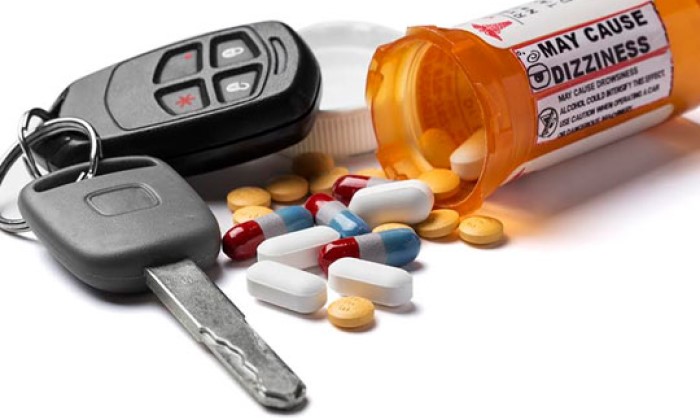
Driving under the influence (DUI) refers to operating a motor vehicle while impaired by drugs or alcohol. The effects of drugs can vary and may impair a person’s ability to drive safely. If a person is found to be driving with a detectable level of drugs in their system, they can be convicted of a DUI. The specifics of drug DUIs vary by state, but in general, if a driver is impaired to the extent that their driving abilities are affected, they can be charged with a DUI, regardless of the substance consumed. The consequences of a drug DUI conviction can include fines, jail time, license suspension, and the requirement to install an ignition interlock device on their vehicle.
Legal and Illegal Drugs
Both legal and illegal drugs can result in a DUI conviction if they impair a person’s ability to drive. Legal drugs include prescription medications, over-the-counter drugs, and some types of supplements. Even if these drugs are taken as directed, they can still impair driving abilities and result in a DUI conviction. Illegal drugs, such as cocaine, marijuana, and methamphetamine, can also lead to a DUI conviction if they impair a person’s ability to drive. In some states, it is illegal to drive with any amount of an illegal drug in your system. It is important to always follow the instructions on prescription and over-the-counter drug labels and to never drive under the influence of drugs or alcohol.
Prescription Drug Defense
A defense for a prescription drug DUI often involves challenging the prosecution’s evidence of impairment. The defense may argue that the defendant was taking the medication as directed by a doctor and was not impaired, or that the medication did not cause the defendant to be impaired to the extent that their driving abilities were affected. In some cases, the defense may also challenge the methods used to test for drug impairment, such as the reliability of blood or urine tests. The defense may also argue that the defendant was not actually driving the vehicle at the time of the arrest, or that the officer did not have probable cause to stop the defendant.
It is important to note that having a valid prescription for a drug is not a guarantee that a person will not be convicted of a DUI. If a person’s driving abilities are impaired, they can still be convicted of a drug DUI, even if they were taking the medication as directed. It is always best to avoid driving if you are feeling the effects of any drug, including prescription medication.
What drugs are most common DUI?
The drugs most commonly involved in DUIs vary depending on the location and the population being surveyed. However, some of the most commonly detected drugs in impaired driving cases include:
- Alcohol: Alcohol is still the most commonly detected substance in impaired driving cases.
- Marijuana: In states where marijuana is legalized for medicinal or recreational use, it is becoming increasingly common as a factor in DUIs.
- Stimulants: Stimulants, such as cocaine and methamphetamine, are often involved in impaired driving cases due to their ability to impair cognitive and motor functions.
- Prescription drugs: Many prescription drugs, such as painkillers, can impair driving abilities and result in a DUI.
It’s important to note that a person can be charged with a DUI even if they are under the influence of a combination of drugs or drugs and alcohol. The key factor is the impairment of the person’s ability to drive safely.
What’s it called when you’re driving under the influence of drugs?
When a person drives under the influence of drugs, it is referred to as a “Drug DUI” or “Driving Under the Influence of Drugs.” It’s important to note that driving under the influence of drugs is illegal and can result in serious consequences, including fines, jail time, license suspension, and the requirement to install an ignition interlock device on their vehicle. Impairment from drugs, regardless of whether they are legal or illegal, can be just as dangerous as impairment from alcohol and can result in a DUI conviction.
What kinds of drugs can potentially result in a driver being charged with a DUI?
A person can be charged with a DUI if they are driving under the influence of any drug that impairs their ability to drive safely. This can include both illegal drugs, such as cocaine and marijuana, as well as legal drugs, such as prescription medication and over-the-counter drugs. Some common types of drugs that can result in a DUI charge include:
- Alcohol
- Marijuana
- Stimulants (e.g. cocaine, methamphetamine)
- Opioids (e.g. prescription painkillers)
- Benzodiazepines (e.g. Valium, Xanax)
- Over-the-counter cold and allergy medications (e.g. Nyquil)
- Sleeping pills
- Anti-anxiety medication
It’s important to note that even if a drug is taken as directed, it can still impair driving abilities and result in a DUI charge. It is always best to avoid driving if you are feeling the effects of any drug, including prescription medication.
DUI Drugs first offense
The consequences of a first-time drug DUI offense vary depending on the jurisdiction, but in general, first-time offenders can face:
- Fines: A first-time drug DUI offense can result in fines ranging from a few hundred to several thousand dollars.
- Jail time: In some jurisdictions, a first-time drug DUI offense can result in a jail sentence of several days to several months.
- License suspension: A first-time drug DUI offense can result in a license suspension for a period of time ranging from several months to several years.
- Alcohol or drug education classes: Some states may require a first-time drug DUI offender to attend and complete an alcohol or drug education program.
- Ignition interlock device: Some states may require a first-time drug DUI offender to install an ignition interlock device in their vehicle.
It’s important to note that the consequences of a drug DUI conviction can become more severe with subsequent offenses, and can result in longer jail sentences, larger fines, and longer license suspensions. It is always best to avoid driving under the influence of drugs or alcohol.
DUI Drugs CVC
The California Vehicle Code (CVC) sets forth the laws and penalties for driving under the influence of drugs (DUID) in the state of California.
According to CVC 23152(f), it is illegal to drive a vehicle under the influence of any drug, whether it is an illegal substance or a prescription medication that impairs the driver’s ability to drive safely. A first-time DUID offense in California can result in:
- Fines: A fine of up to $2,000.
- Jail time: Up to 6 months in county jail.
- License suspension: A license suspension for up to 10 months.
- Alcohol or drug education classes: A court-ordered alcohol or drug education program.
- Ignition interlock device: A requirement to install an ignition interlock device in the vehicle for a period of time determined by the court.
It’s important to note that the penalties for a DUID in California can become more severe with subsequent offenses, and can result in longer jail sentences, larger fines, and longer license suspensions. Additionally, a DUID conviction can result in increased insurance premiums, difficulty finding employment, and other long-term consequences.
DUIs Drug Test
Drug testing is a common practice in DUI cases involving drugs. The type of drug test used will depend on various factors, including the suspected drug, the jurisdiction, and the resources available. Some common types of drug tests used in DUI cases include:
Blood tests:
Blood tests can detect the presence of drugs in a person’s bloodstream, and can be used to determine the concentration of drugs in the bloodstream. Blood tests are usually performed in a hospital or medical facility and are more accurate than other types of drug tests.
Urine tests:
Urine tests can detect the presence of drugs in a person’s system and can be used to determine the concentration of drugs in the urine. Urine tests are less invasive than blood tests and are commonly used in DUI cases.
Saliva tests:
Saliva tests can detect the presence of drugs in a person’s saliva and are becoming increasingly common in DUI cases. Saliva tests are less invasive than blood and urine tests and are less likely to be tampered with.
Hair tests:
Hair tests can detect the presence of drugs in a person’s hair, and can be used to determine drug use over a period of time. Hair tests are less common than blood, urine, and saliva tests in DUI cases.
It’s important to note that the results of drug tests can be challenged in court, and it is possible to contest the results of a drug test if there is reason to believe that the test was not performed properly, the results were not accurately interpreted, or the results were contaminated. However, a positive drug test result can be used as evidence in a DUI case and can result in a conviction if the prosecution can prove that the person was under the influence of drugs while driving.
Conclusion
Driving under the influence of drugs (DUID) is a serious offense that can result in severe consequences. The consequences of a DUID conviction can include fines, jail time, license suspension, alcohol or drug education classes, and the requirement to install an ignition interlock device. The type of drug test used in a DUID case can include blood tests, urine tests, saliva tests, and hair tests.
The results of drug tests can be challenged in court, but a positive drug test result can be used as evidence in a DUI case and can result in a conviction if the prosecution can prove that the person was under the influence of drugs while driving. It is always best to avoid driving under the influence of drugs or alcohol, as the consequences of a DUID conviction can have long-lasting and far-reaching impacts on a person’s life.







